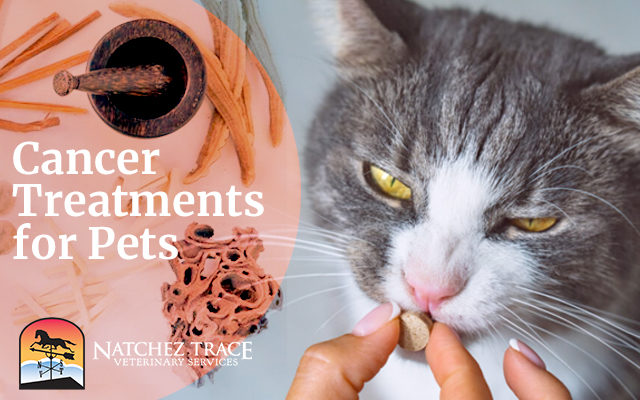Pet Cancer Treatments
When you’re standing in an exam room, holding your dog or cat, and waiting for a diagnosis, the last thing you want to hear your veterinarian say is “cancer.”
It brings to mind a rush of complex, confusing emotions. Maybe you are reminded of your own experiences or a friend or a relative who dealt with cancer.
You feel powerless to help your pet, almost like you’re under attack. You have a whole list of new decisions to make about treatment, finances, and caretaking.
A minute ago, you considered your pet healthy and happy. Now, you are afraid he/she will suffer or lose mobility. Or, even worse, you could lose him/her.
In an instant, one word has changed your whole world.
Understanding the Emotional Impact
The initial shock of a cancer diagnosis can leave you feeling powerless, with images of potential suffering and loss dominating your thoughts.
These emotions are expected, given the gravity of the situation.
Acknowledging and processing these feelings is important, recognizing that the journey ahead will be challenging but manageable.
The Treatability of Cancer in Pets
Contrary to the fears that cancer instills, it’s essential to know that cancer in pets is highly treatable, especially when detected early.
In fact, it is considered one of the most curable chronic diseases in pets.
Numerous effective pet cancer treatments exist, and advancements in therapies continue to expand the options available.
With informed decision-making, collaboration with your pet’s healthcare team, and self-care, managing your pet’s cancer doesn’t have to be a daunting experience.
Our Approach To Pet Cancer Treatments
We understand the unique journey each pet faces when dealing with cancer.
That’s why we take a personalized approach, offering a blend of alternative and traditional cancer treatments tailored to the specific type of cancer your pet is confronting.
We recognize that every pet has distinct needs, and our commitment lies in selecting the most practical combination of therapies to ensure the best possible outcome.
Alternative Pet Cancer Treatments
In our opinion, based on our clinical experience, the best way to treat pets with cancer is through a combination of traditional and alternative medicine.
Why? Because using alternative medicine allows for a multi-faceted approach to cancer that cannot be achieved by using Western Medicine alone!
For example, we commonly use food therapy and culinary herbs in our approach to cancer therapy.
It is well documented in the Western scientific literature that culinary herbals and foods such as curcumin and certain mushroom species have anti-cancer properties. We use these approaches to get better results!
We also incorporate Traditional Chinese Veterinary Medicine (TCVM) and Eastern herbal medicine into our cancer treatments.
Some examples of our alternative cancer treatments include:
Traditional Pet Cancer Treatments
Our clinic offers a comprehensive suite of traditional options designed to address various types of cancer.
- Surgery: An option to remove or reduce cancer, enhancing the effectiveness of other treatments. Risks include anesthesia, bleeding, and postoperative pain. Cures are possible with early intervention.
- Chemotherapy: Using drugs to target cancer cells with minimal damage to normal cells. Side effects may include nausea and lowered immunity, but not all dogs experience significant hair loss. Combinations of drugs are often used for better efficacy.
- Cryotherapy: Freezing cancerous tissues to destroy them with minimal damage to surrounding normal tissues. Not all cancers are susceptible, and the location may impact the feasibility of this therapy.
Navigating the realm of cancer treatments for your cherished pet requires a thoughtful and informed approach.
As emotions run high, it’s reassuring to knowing that our clinic combines traditional and alternative cancer treatments, tailoring a customized plan for each unique case.
We recognize the gravity of the journey ahead and strive to empower pet owners with the knowledge that cancer in pets is highly treatable, especially when detected early.
Our commitment extends beyond the standard options, encompassing a holistic approach that integrates alternative treatments with surgery, chemotherapy, radiation, and cryotherapy.
By combining alternative and traditional cancer treatments, we enhance their effectiveness and provide a comprehensive strategy.
In the face of a cancer diagnosis, rest assured that our clinic stands as a beacon of hope, dedicated to supporting you and your furry companion through this challenging but manageable journey, fostering the possibility of many more happy and healthy years together.
We offer in-clinic services and telemedicine consultations for pet cancer treatments.





